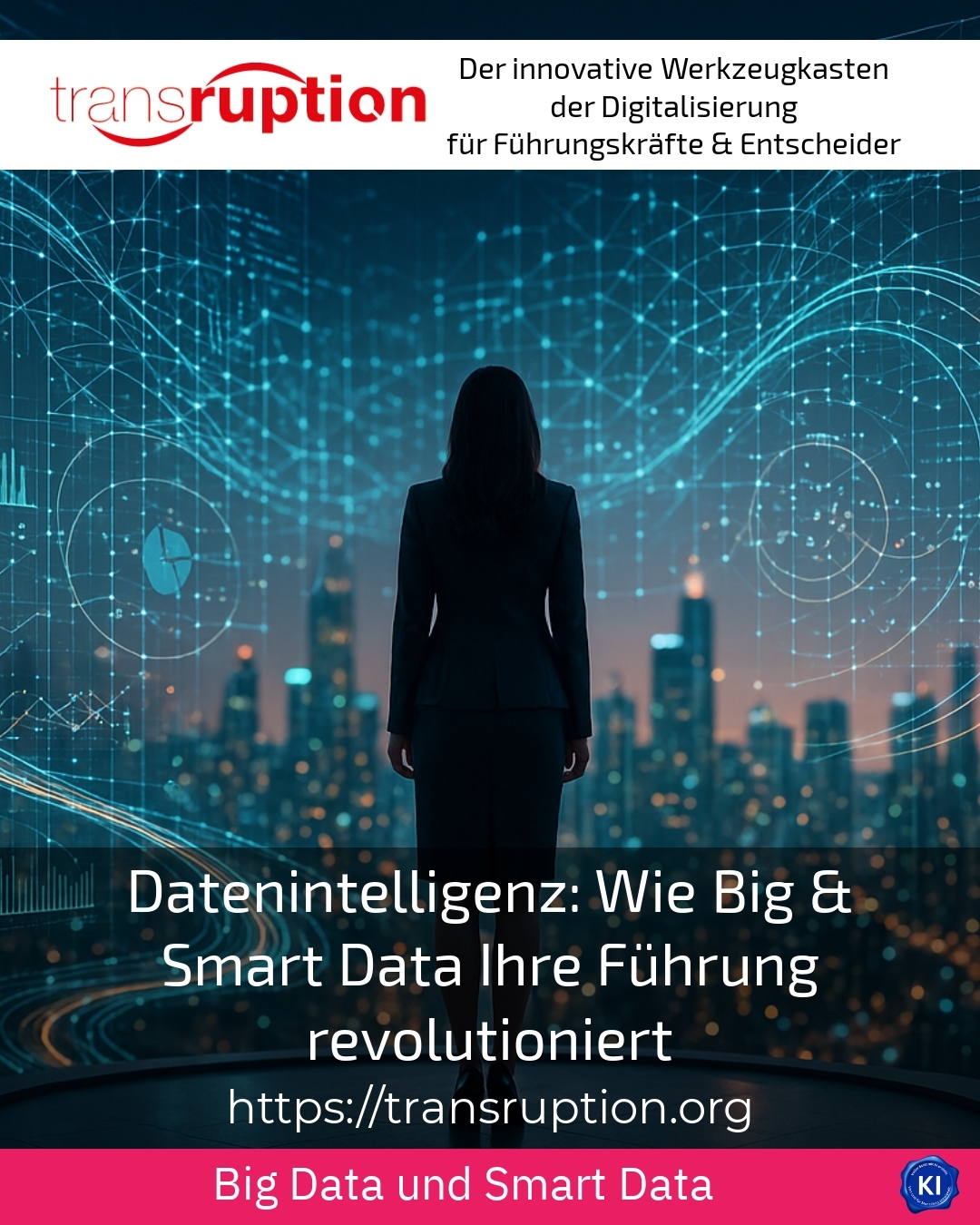Data intelligence is a crucial factor for companies that want to gain a competitive advantage by utilising big and smart data. In a world where data is growing exponentially, the challenge is to turn these volumes of data into manageable and valuable information. Data intelligence enables companies to make the right decisions by optimising the entire data chain from collection to analysis.
Some of the key industries that benefit from these technologies are healthcare, retail and financial services. In healthcare, big data and data intelligence can be used to analyse complex patient data in order to develop early detection and treatment strategies. In retail, these technologies support the personalisation of advertising measures and the optimisation of inventory management. In the financial sector, they are used to combat fraud and analyse market trends.
Data intelligence: the connection between big and smart data
Big data refers to the huge amounts of data that are generated every day and overwhelm traditional data processing systems[1][6]. This data consists of structured, unstructured and semi-structured information and is characterised by its quantity, speed and variety. However, big data alone is not enough; it needs to be transformed into smart data in order to gain relevant and valuable insights[2][3].
Smart data, on the other hand, is filtered, cleansed and contextualised data that can provide direct recommendations for action[2][4]. This data is not only accurate, but also timely and therefore particularly useful for business decisions. Data intelligence helps companies to identify and analyse the right amount of data to develop effective strategies.
Areas of application for smart data
One example of the use of smart data is analysing the customer journey in retail. By linking data from different interaction channels, companies can better understand the preferences and needs of their customers and implement targeted marketing measures[2]. Smart data is also used in the industrial sector to optimise processes and increase efficiency. For example, sensor data from machines can be analysed in real time in order to plan maintenance work and minimise downtime[4].
BEST PRACTICE at the customer (name hidden due to NDA contract)A leading company in the manufacturing industry used smart data to analyse production processes and introduce predictive maintenance. By analysing sensor and machine data, the company was able to reduce downtime by 30 % and increase overall productivity.
Data intelligence as a management tool
Data intelligence is increasingly becoming a key tool for managers. By combining big and smart data, companies are able to make data-driven decisions that not only increase efficiency but also enable innovative business models. These transformative processes are crucial for long-term success in an increasingly dynamic world.
Transruption coaching supports companies in the implementation of data intelligence and helps them to develop the right technologies and strategies. This not only supports companies in overcoming challenges, but also enables them to recognise and exploit new opportunities.
My analysis
In summary, data intelligence enables companies to use big and smart data effectively to optimise their business processes and gain valuable insights. By focusing on qualitative and timely data insights, managers can make data-driven decisions that strengthen their organisation's competitive advantage.
Further links from the text above:
- Big Data vs. Smart Data](https://netconomy.net/blog/big-data-smart-data/)
- Big Data vs. Smart Data](https://www.dataversity.net/articles/big-data-vs-smart-data/)
- Big Data Defined](https://cloud.google.com/learn/what-is-big-data)
- From Big Data to Smart Data](https://www.i-scoop.eu/big-data-action-value-context/from-big-data-to-smart-data-processes-and-outcomes/)
For more information and if you have any questions, please contact Contact us or read more blog posts on the topic TRANSRUPTION here.
















